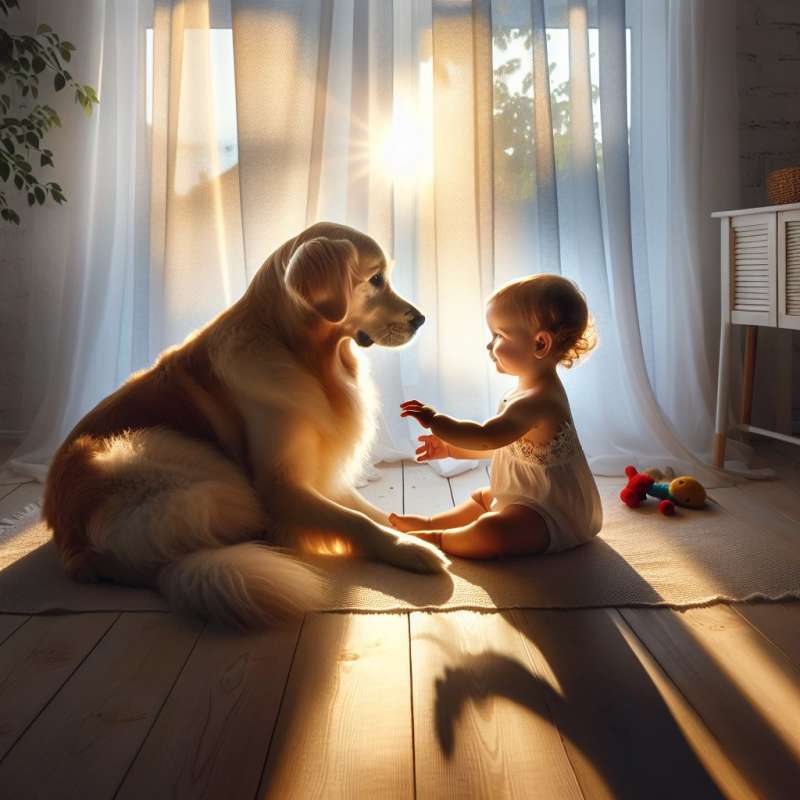
Understanding Canine Behavior
Dogs often view babies as part of their 'pack' and may display protective behaviors. They interpret baby's body language and vocalizations based on their pack instincts, which can sometimes be misread.
Babies' Response to Dogs
Studies show that babies can form attachments to dogs similar to human bonds. Even in infancy, babies can exhibit signs of happiness and excitement in response to their furry companions.
Dogs Sensing Pregnancy
Dogs may detect pregnancy even before you know. Their heightened sense of smell can identify the hormonal changes, which might alter their behavior towards the expectant mother, often becoming more gentle and protective.
Health Benefits for Babies
Exposure to dogs early in life is linked to a lower risk of asthma and allergies in children. The 'hygiene hypothesis' suggests that dog-associated dust might help babies' immune systems to develop more robustly.
Teaching Mutual Respect
It's crucial to teach dogs and babies mutual respect. Introduce them properly, supervise interactions, and educate your child as they grow on how to treat the dog gently and recognize signs of discomfort.
Dog Breeds and Babies
Some dog breeds are known for their patience and gentleness with children, like Labradors and Beagles. However, an individual dog's temperament is more important than breed when it comes to interactions with babies.
Emotional Connections Formed
Dogs and babies can develop strong emotional connections that benefit both. The bond can enhance social development in children and provide dogs with a sense of purpose and companionship.
How do dogs view babies?
As outsiders to the pack
Part of their pack
Indifferent companions
Company